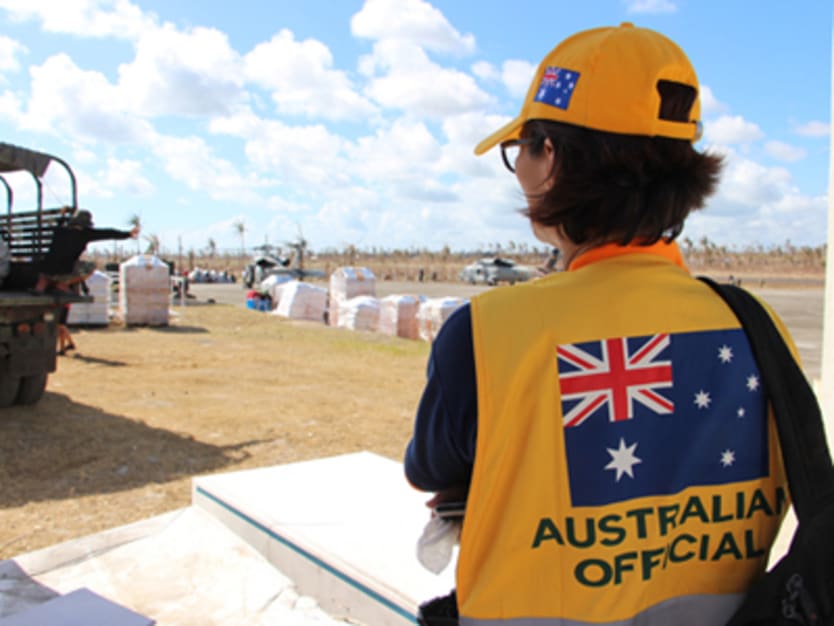
Australia’s aid program is generally good — but it needs to improve on aid effectiveness, and high staff turnover is the most serious weakness in the current reform process, according to a new survey.
The report published by the Canberra-based Development Policy Center is based on interviews with 365 aid professionals and implementers, including government and NGO officials, academics and consultants for a comprehensive look at the program from the opinions of those who know it best.
It offers an insight into how the country’s aid community feels about the direction of AusAID’s ambitious reforms at a time when stakeholders are still waiting for specific details about how the new government led by Prime Minister Tony Abbott plans to downsize the aid portfolio, apart from the AU$4.5 billion cut in the foreign aid budget and the already implemented re-integration of the formerly semiautonomous aid agency into the Department of Foreign Affairs and Trade led by Julie Bishop.
So far, support for several programs — including an award-winning clinic for Myanmar refugees on the Thai border — have been discontinued, up to 12,000 civil servants within the merged department are expected to lose their jobs, and serious concerns have been raised over foreign policy and commercial interests being prioritized over humanitarian needs.
Staffing woes
In the survey, the overwhelming majority of respondents consider AusAID’s ambitious reform agenda to be largely “unfinished,” especially when it comes to aid effectiveness, staffing, decision-making and alignment with government foreign policy.
The most serious weakness is in human resources, especially staff continuity in managers, most of which have been in their positions for less than twelve months — likely due to political reasons in 2013, a year that featured three different prime ministers and a general election that led to a change of party in government.
“Rapid staff turnover undermines the consistency of effort and accumulation of expertise required to deliver effective aid,” DevPolicy Director Prof. Stephen Howes said in the executive summary of the survey.
And more staffing woes are expected in the future, when DFAT releases how many of the 12,000 job cuts in the civil service will come from AusAID, which departments will be affected by them and how the department will adjust aid workers’ compensation and benefits to align them with those of Australian diplomats and trade officials.
“AusAID staff are feeling anxious about the integration,” Labor MP for Canberra Gai Brodtmann told Devex in October after meeting with agency employees to discuss the amalgamation process.
Uncertainty
Apart from staffing issues, respondents to the survey also singled out slow decision-making and submission to foreign policy and commercial interests as the other two most serious weaknesses of Australia’s aid program.
In the case of the former, “micromanagement, risk aversion, and lack of selectivity” were all mentioned as problems, Howes wrote in an opinion for The Canberra Times. As for aid taking a backseat in government priorities, respondents indicated they believe that strategic and commercial objectives are already more important for Australian aid than development goals at this time.
The survey confirmed the uncertainty with which the country’s development community views AusAID reform, particularly given the overall goal of improving aid effectiveness. Here is where the players called on DFAT to put in place an organizational structure that will address the issues and maintain the agency’s “specialized and accountable capacity” for aid delivery.
“With all the corporate and strategic uncertainty now, and budget and staff cuts, critical factors for aid effectiveness such as staff continuity, staff expertise, and program continuity are all under threat. And areas where there has been progress, such as transparency, might be neglected … The AusAID-DFAT merger is now a fact of life, but budget, staffing and structural decisions need to be made quickly and in such a way that staff and program continuity is protected,” wrote Howes.
What do you think? Please let us know by leaving a comment below, joining our LinkedIn discussion or sending an email to news@devex.com if you wish to remain anonymous.
Read more development aid news online, and subscribe to The Development Newswire to receive top international development headlines from the world’s leading donors, news sources and opinion leaders — emailed to you FREE every business day.


